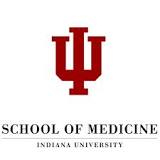Denosumab for Glucocorticoid-treated Children With Rheumatic Disorders
| Status: | Not yet recruiting |
|---|---|
| Conditions: | Arthritis, Arthritis, Lupus, Osteoporosis, Rheumatoid Arthritis, Skin and Soft Tissue Infections, Cardiology |
| Therapuetic Areas: | Cardiology / Vascular Diseases, Dermatology / Plastic Surgery, Immunology / Infectious Diseases, Rheumatology |
| Healthy: | No |
| Age Range: | 4 - 16 |
| Updated: | 4/21/2016 |
| Start Date: | June 2017 |
| End Date: | June 2018 |
| Contact: | Marian Hart |
| Phone: | 317-948-8346 |
Denosumab for Glucocorticoid-treated Children With Rheumatic Disorders: a Pilot Study
The purpose of this study is to evaluate denosumab as a novel treatment for bone loss in
children treated with glucocorticoids for rheumatic disorders. This is a pilot Phase 1/2,
randomized open-label, 12-month clinical trial of denosumab to assess its effect on bone
resorption markers and bone mineral density (BMD) in children with rheumatic disorders, age
4 to 16 years, recruited within 1 month of starting a chronic systemic glucocorticoid
regimen. Primary outcomes include suppression of bone turnover markers and safety
assessments. Secondary outcomes include changes in bone density as measured by dual energy
X-ray absorptiometry (DXA) and peripheral quantitative computed tomography (pQCT)
densitometry at the radius and tibia.
children treated with glucocorticoids for rheumatic disorders. This is a pilot Phase 1/2,
randomized open-label, 12-month clinical trial of denosumab to assess its effect on bone
resorption markers and bone mineral density (BMD) in children with rheumatic disorders, age
4 to 16 years, recruited within 1 month of starting a chronic systemic glucocorticoid
regimen. Primary outcomes include suppression of bone turnover markers and safety
assessments. Secondary outcomes include changes in bone density as measured by dual energy
X-ray absorptiometry (DXA) and peripheral quantitative computed tomography (pQCT)
densitometry at the radius and tibia.
The purpose of this study is to evaluate denosumab as a novel treatment for bone loss in
children treated with glucocorticoids for rheumatic disorders. Children with rheumatic
disorders are at risk for low bone density and fractures from the inflammatory effects of
the underlying disease, and also from direct effects of glucocorticoids on bone. This is a
pilot Phase 1/2, randomized open-label, 12-month clinical trial of denosumab to assess its
effect on bone resorption markers and BMD in children with rheumatic disorders, age 4 to 16
years, recruited within 1 month of starting a chronic systemic glucocorticoid regimen. Two
different sequential doses will be administered to the intervention group and evaluation for
safety and efficacy will be conducted at study visits. Primary outcomes include suppression
of bone turnover markers and safety assessments. Secondary outcomes include changes in bone
density as measured by dual energy X-ray absorptiometry (DXA) and peripheral quantitative
computed tomography (pQCT) densitometry at the radius and tibia.
children treated with glucocorticoids for rheumatic disorders. Children with rheumatic
disorders are at risk for low bone density and fractures from the inflammatory effects of
the underlying disease, and also from direct effects of glucocorticoids on bone. This is a
pilot Phase 1/2, randomized open-label, 12-month clinical trial of denosumab to assess its
effect on bone resorption markers and BMD in children with rheumatic disorders, age 4 to 16
years, recruited within 1 month of starting a chronic systemic glucocorticoid regimen. Two
different sequential doses will be administered to the intervention group and evaluation for
safety and efficacy will be conducted at study visits. Primary outcomes include suppression
of bone turnover markers and safety assessments. Secondary outcomes include changes in bone
density as measured by dual energy X-ray absorptiometry (DXA) and peripheral quantitative
computed tomography (pQCT) densitometry at the radius and tibia.
Inclusion Criteria:
1. Age 4 to 16 years of age.
2. Diagnosis of one of the following by a rheumatologist using standard criteria:
juvenile dermatomyositis, juvenile idiopathic arthritis, systemic arthritis,
seronegative or seropositive polyarthritis, psoriatic arthritis, systemic lupus or
systemic vasculitis.
3. Within 1 month of initiating glucocorticoids ≥0.5 mg/kg prednisone equivalent daily,
planned for ≥ 6 months.
4. BMD by DXA with Z-score < 0.0 on screening at lumbar spine or total body less head
(TBLH).
Exclusion Criteria:
1. Previous treatment with a bisphosphonate, or other osteoporosis medication.
2. Metabolic bone disorders besides glucocorticoid-induced osteoporosis; other disorders
treated with systemic glucocorticoids (inflammatory bowel disease, severe pulmonary
disease, nephrotic syndrome, etc.).
3. Intent to treat with a tumor necrosis factor inhibitor or Interleukin 6 receptor
antagonist during the first 6 months.
4. Glomerular filtration rate < 30ml/min [pediatric estimated glomerular filtration rate
= 0.413*(height/serum creatinine)] 75
5. Planned orthopedic or other major surgery during the course of the study (at the time
of enrollment)
6. Significant dental caries, or plans to undergo invasive oral procedures during the
subsequent 12 months.
7. Known allergy to latex (drug packaging includes a natural rubber stopper), fructose
intolerance or other denosumab contraindication.
8. 25-hydroxyvitamin D (25OHD) level < 32 ng/dl. Subjects with 25OHD <32 ng/ml may be
given cholecalciferol and rescreened.
9. Hypocalcemia at screening (total serum calcium < 8.5 mg/dl after correction for
albumin level).
10. Chronic ventilator dependence, or other conditions increasing risk of participation.
11. Pregnancy, or refusal to use acceptable contraception or abstain during the protocol
(post-pubertal female).
We found this trial at
1
site
340 W 10th St #6200
Indianapolis, Indiana 46202
Indianapolis, Indiana 46202
(317) 274-3772

Indiana University School of Medicine With more than 2,000 students in 2013, the Indiana University...
Click here to add this to my saved trials